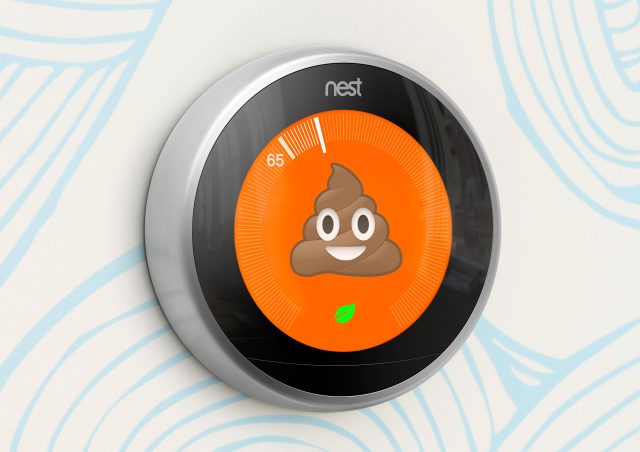 |
| Credit: arsTECHNICA |
I'm still No on the Internet of Things, and continue to argue against the dominant model that is infecting our personal and public spaces with terrifyingly powerful surveillance systems (here's me, shirt untucked, wild-eyed, making the case against this and talking about a better way; start at 1:58). But there are lots of other reasons why the IoT, and specifically the Smart Home as currently commercialized, remains a bad idea badly done. Google, corporate owner of the industry-leading Nest products, has just this week given us all a reminder of one very important one by making sweeping changes to the terms of use for those products. Previously, you could use your Nest to communicate with smart things and smart services made by other manufacturers. As of August, that's over: if you want your Nest devices to be part of an ecosystem rather than (much less valuable) independent actors you'll have to buy a hub from Google, for example, the newly-introduced Nest Hub Max, a voice-activated device studded with microphones and a camera and enabled with Voice Match and Face Match...and here we are back at the surveillance problem though truly that wasn't where I was aiming to go.
Generally speaking, when you make a piece of hardware "smart," you turn it into a piece of software, and software still sucks. You own software, a lot of it, most obviously in the forms of app(lication)s on your various computing devices. Those applications are valuable, providing useful services to us all, but they are also a lot of trouble. They introduce attack vectors into our lives. They lose functionality as their corporate owners change business priorities or merge and disappear. They demand, via variable business models and subscription contracts, that we pay with our time, our attention, and our money in an ever-changing fashion that is impossible to predict. And they require, more or less explicitly but still and almost always opaquely, that we enter into contractual agreements that almost none of us really understand. A devil's bargain, but still, on the whole, worth it because the services those applications provide represent major upgrades to their non-software equivalents. Think encryption, email, spreadsheets, mapping.
Smart things bring with them all of the downsides of software but, so far, don't upgrade the dumb things they replace with enough important functionality to justify the trouble. With an app I am able to communicate instantly with people thousands of miles away. It is miraculous and worth almost any price. With a light bulb I am able to see in the dark. It is also miraculous and worth almost any price (but, amazingly, that price is pennies). With a smart light bulb I am able to see in the dark...if I've kept my firmware updated, agreed to the privacy policy, and not gotten hacked. I am also able to do some other things, like turn the bulb on and off remotely (i.e., more remotely than the current remote called a light switch) or dim it using an app (as I could with the type of light switch called a "dimmer") or program it to turn on and off when I am not there (which is what another type of light switch called a "timer" is for, but OK). These capabilities are not miraculous, and are not worth the software symptoms they entail, even ignoring the fact that Google will now know when you light your home.
We're moving back to California, and when we return, a year after leaving, we will find our house offers the same level of (non)functionality requiring agreement to the same terms of use (none) for the same costs (electricity mostly). It's a dumb dumb home, and it will stay that way until someone creates smart hardware of unique utility that truly makes that home more homey.